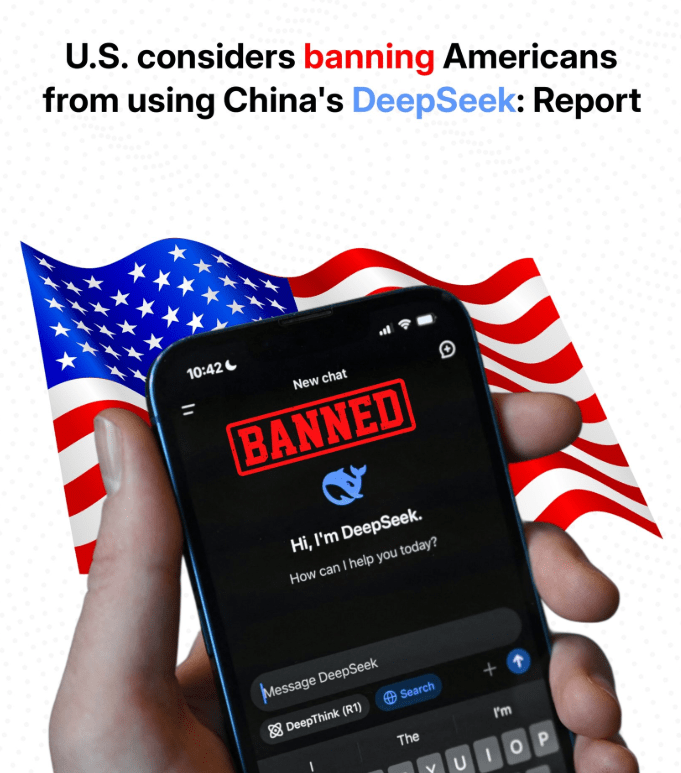- Trump administration may limit DeepSeek’s access to Nvidia AI chips and U.S. markets.
- DeepSeek’s cheap AI models gain U.S. popularity but face IP theft concerns.
- Polymarket shows 9% chance of a DeepSeek ban in the U.S. by July.
The Trump administration is considering new restrictions on DeepSeek, a Chinese AI firm, under a recent report by The New York Times. The restrictions may prevent DeepSeek from purchasing Nvidia’s sophisticated AI chips and even prevent Americans from accessing its AI services.
The action is one of the ways, that the Trump administration is seeking to remain ahead of China in the rapidly expanding domain of artificial intelligence.
Trump Administration Targets DeepSeek
The Trump administration’s interest in DeepSeek is timely as the company has been making waves in the U.S. Its low cost AI models have gained popularity among American developers, forcing Silicon Valley firms to reduce prices for state of the art AI tools.
DeepSeek’s success has been a wake up call for U.S. tech leaders, demonstrating how fast Chinese companies are closing the gap in the AI race.
Concerns Over AI Competition
But there are worries about how DeepSeek constructed its influential AI models. Some in the United States, including OpenAI, argue that DeepSeek might have swiped intellectual property by duplicating or “distilling” others’ models.
OpenAI has accused the Chinese laboratory of violating its rules, questioning whether DeepSeek’s low cost models were created ethically.
The Trump administration is not resting on DeepSeek. Just last week, the White House placed tighter restrictions on Nvidia’s sales of AI chips to China, expanding rules initially enacted by the Biden administration.
The moves reflect the Trump administration’s determination to curtail China’s access to key U.S. technology while shielding American innovation.
In the meantime, the Trump administration is still considering its move on DeepSeek. Any choice to exclude the company from U.S. markets or chip supplies would have significant consequences on both sides of the Pacific. It would likely make it harder for DeepSeek to grow while challenging U.S. companies to up their game in AI innovation.
Public interest in DeepSeek’s future can be seen on Polymarket, a decentralized prediction market platform, where bets are being made on whether the Trump administration will ban DeepSeek in the U.S. prior to April 2025, with current odds at 9% chance of a ban by July.
As the Trump administration goes on, the DeepSeek controversy highlights the bigger issue of finding competition versus fairness in the race to develop technology globally.
As artificial intelligence becomes a growing part of the future, the steps taken by the Trump administration could dictate for decades to come the way that the U.S. and China are competing in this important area of development.
Also Read: First in India: Indian Police AI Powers Maharashtra Cyber Police Recruitment



